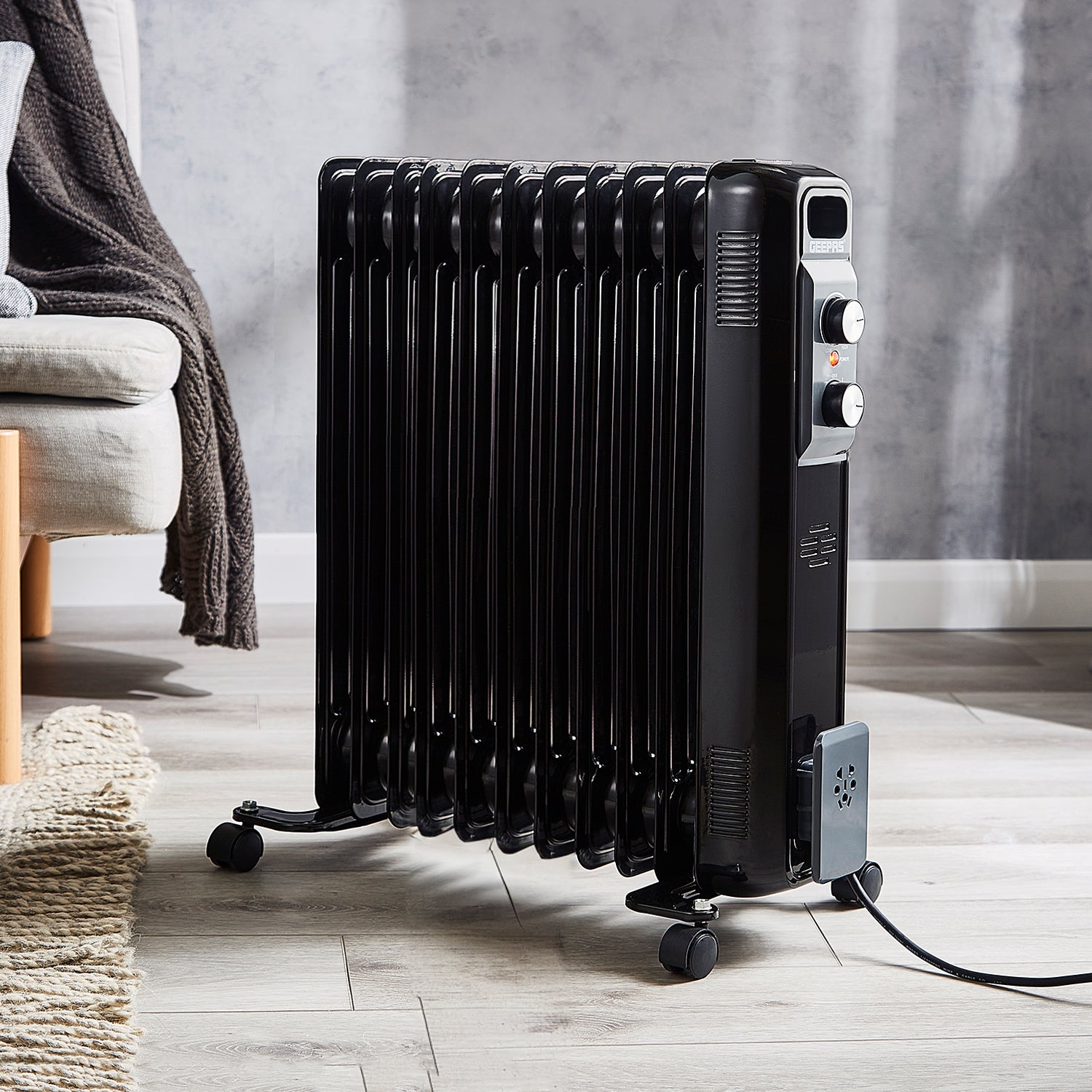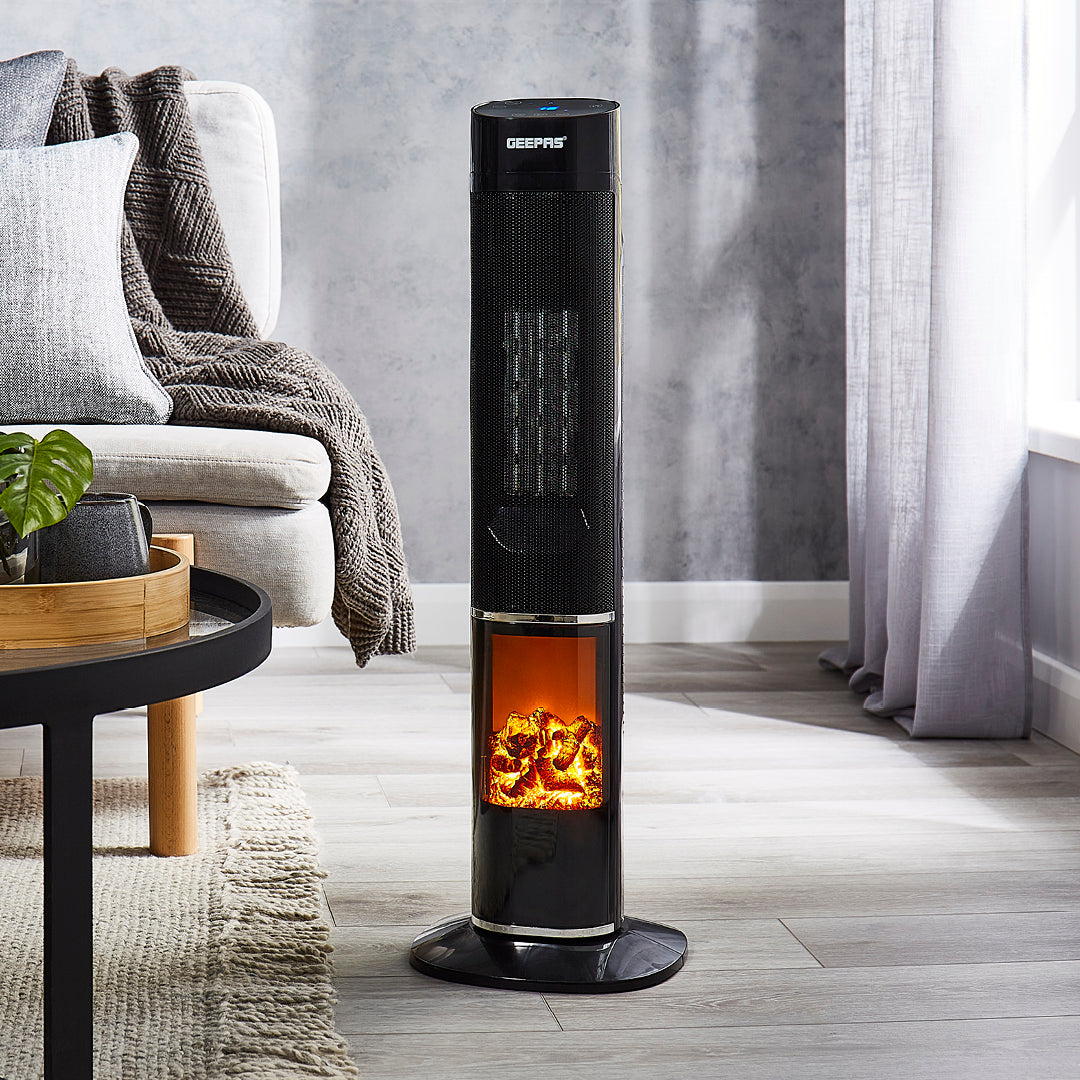When it comes to heating your home, the choice between electric heaters and gas heaters can be a challenging decision. Both options have their own unique advantages, but which one is the right fit for your needs? In this detailed article, we will explore the key differences between electric and gas heaters, their benefits, drawbacks, costs, and efficiency, helping you make an informed choice.
Electric Heaters Vs Gas Heaters: An Overview
Electric Heaters
Electric heaters are a popular option due to their convenience, versatility, and ease of use. They convert electrical energy into heat, making them highly efficient at producing warmth quickly and in targeted areas. Some common types of electric heaters include:
- Oil-filled radiators
- Convection heaters
- Infrared heaters
- Fan heaters
- Panel heaters
Electric heaters are known for their quiet operation and are often chosen for bedrooms, living rooms, and small office spaces where minimal noise is crucial.
Gas Heaters
Gas heaters, on the other hand, rely on natural gas or propane to generate heat. They are typically more powerful than electric heaters and are ideal for heating larger spaces. Types of gas heaters include:
- Portable gas heaters
- Wall-mounted gas heaters
- Gas-powered central heating system
- Outdoor patio gas heaters
Gas heaters are favored for their quick heat distribution and ability to heat large areas efficiently. They are commonly used in homes, workshops, and outdoor settings.
Key Differences Between Electric and Gas Heaters
1. Efficiency
- Electric heaters: Electric heaters are almost 100% efficient in converting electrical energy to heat, meaning all the energy used is transformed into warmth. This makes electric heaters a great option for smaller rooms or spaces where targeted heating is required.
- Gas Heaters: Gas heaters, while efficient at heating large spaces, do not convert all the energy they use into heat. Some energy is lost through vents or exhausts. However, for whole-house heating or larger spaces, gas heaters can be more cost-effective despite slightly lower energy conversion efficiency.
2. Heating Speed
- Electric heaters: Most electric heaters, especially fan heaters and infrared heaters, provide almost instant heat. They are ideal for quick heating in smaller rooms and personal spaces.
- Gas heaters: Gas heaters also heat up quickly, but they are more suited for sustained heating over long periods. Once turned on, they can quickly warm up large areas and maintain the desired temperature.
3. Cost of operation
- Electric heaters: The operating cost of electric heaters depends on electricity rates in your area. While they are efficient, using electric heaters in large spaces or for long periods can become costly.
- Gas heaters: Gas heaters are generally cheaper to run than electric heaters, especially in homes connected to natural gas. Propane-fueled gas heaters can be more expensive but are still more affordable than using electricity for heating large areas.
4. Installation and Maintenance
- Electric heaters: Electric heaters are simple to install. Many are portable, plug-and-play devices that require no professional installation. Maintenance is minimal, requiring occasional cleaning of filters (if any) and ensuring the device is free from dust buildup.
- Gas heaters: Gas heaters, especially central heating systems, often require professional installation due to gas line connections. They also need regular maintenance to ensure the safety of gas lines, vents, and combustion components.
Safety Considerations
- Electric heaters: Modern electric heaters come equipped with various safety features like overheat protection, auto shut-off, and tip-over protection. These features make them ideal for homes with children and pets.
- Gas heaters: Gas heaters must be used with caution, particularly portable units. There's risk of carbon monoxide leaks if not properly vented, so it's crucial to ensure proper ventilation and install carbon monoxide detectors when using gas heaters indoors.
Environmental Impact
- Electric heaters: The environmental impact of electric heaters depends largely on the source of electricity. If your electricity comes from renewable sources, electric heaters can be considered a greener option. However, if your power grid relies heavily on coal or fossil fuels, the carbon footprint could be higher.
- Gas heaters: Natural gas is a fossil fuel, and although gas heaters can be more efficient for heating large spaces, they do contribute to greenhouse gas emissions. For those looking to minimize their environmental impact, electric heaters powered by renewable energy are a better option.
Portability
- Electric heaters: One of the biggest advantages of electric heaters is their portability. Whether you choose a portable fan heater, oil-filled radiator, or panel heater, most electric models are lightweight and can be easily moved from room to room.
- Gas heaters: While some gas heaters are portable, they are generally bulkier and require gas canisters or connections to operate. This makes them less convenient to move around frequently.
Best Use Cases For Electric and Gas Heaters
When to choose Electric Heaters:
- Smaller spaces: Electric heaters are ideal for small rooms, bedrooms, or office spaces when targeted heating is needed.
- Supplemental heating: Electric heaters are perfect for supplementing existing central heating systems in specific areas of the home.
- Portable heating: If you need a heater that can be moved between rooms or taken to different locations, electric heaters offer the best portability.
- Silent operation: For areas where noise is a concern, like bedrooms or study rooms, electric heaters offer quiet performance, especially oil-filled and convection models.
When to choose Gas Heaters:
- Large spaces: If you need to heat large rooms, living spaces, or even outdoor patios, gas heaters are far more effective and cost-efficient.
- Whole-house heating: Gas heaters, especially gas-powered central heating systems, are great for warming up entire homes.
- Long-term use: If you plan on running a heater for extended periods, gas heaters are by far much more cost-effective in terms of fuel consumption.
Which Is More Energy-Efficient: Electric or Gas Heaters?
When it comes to energy efficiency, the answer depends on the size of the space you want to heat and how long you plan on using the heater.
- Electric heaters are highly efficient for small spaces and short-term use. They convert almost all the electricity they use into heat, but electricity can be more expensive than gas, especially when used for extended periods.
- Gas heaters are better suited for larger areas and long-term heating needs. While not all energy is converted into heat, gas is typically cheaper than electricity, making gas heaters a more cost-effective option for large-scale heating over time.
Conclusion: Which Heater Is Right For You?
Choosing between an electric heater and a gas heater comes down to your specific heating needs, room size, budget, and environmental concerns.
- Electric heaters are great for small rooms, quick heating, and portability. They are safe, easy to use, and efficient for personal or supplemental heating.
- Gas heaters are better for larger spaces, outdoor use, or whole-house heating. They provide powerful, cost-effective warmth but require more attention to safety and installation.
No matter which heating option you choose, both electric and gas heaters offer unique benefits that can keep you warm and cosy through the cold winter months. Make sure to consider factors like operating costs, installation, safety, and energy efficiency when deciding which heating solution best suits your home.
For more information on energy-efficient heaters, quiet electric heaters, and other home heating solutions, browse our comprehensive heating guides to find the perfect match for your comfort and budget.





